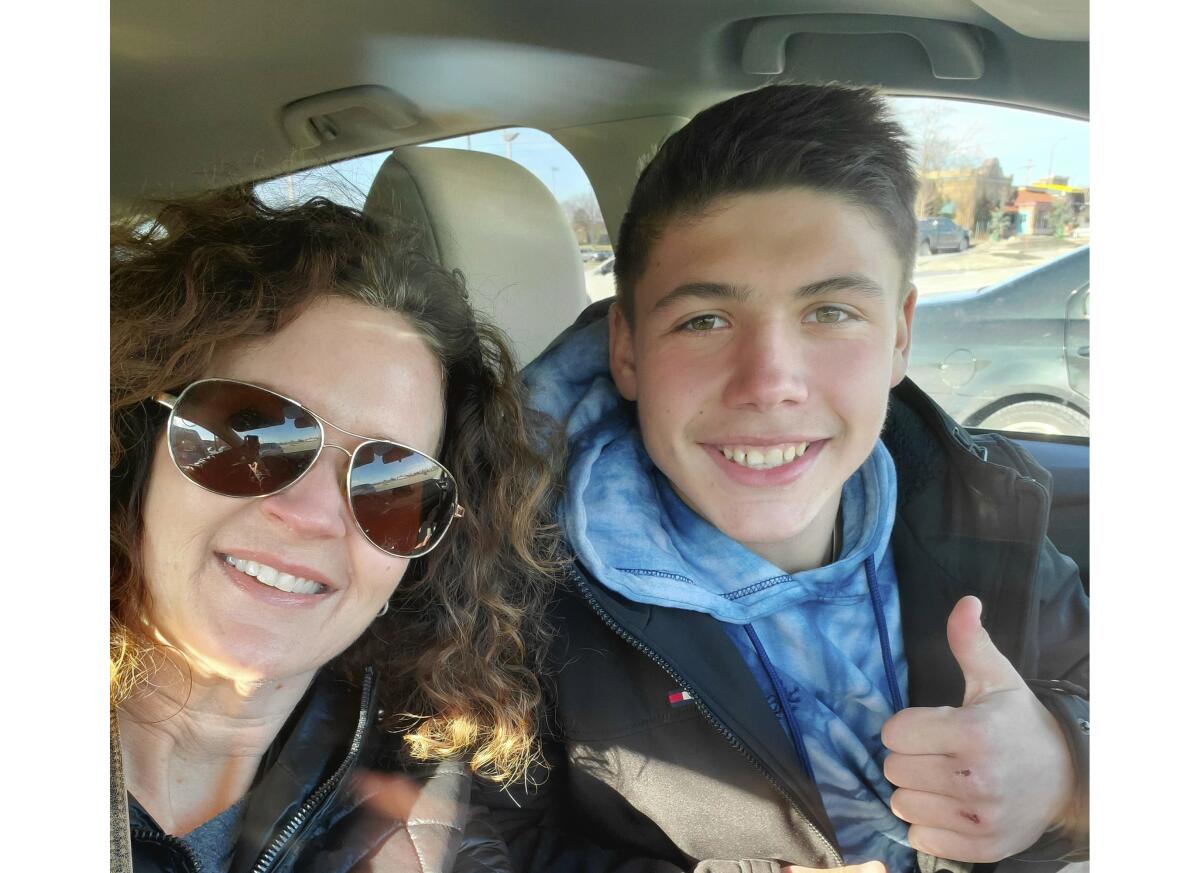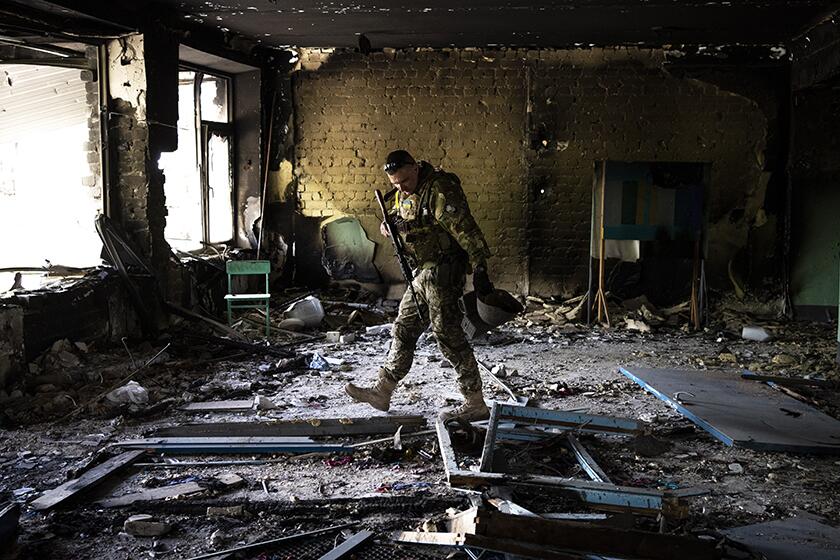Adoptions are another facet of life interrupted by war in Ukraine

- Share via
LEEDS, Maine — The ripple effects of Russia’s invasion of Ukraine have been devastating for families of all kinds — including those who have seen their prospective adoptions put on hold.
Ukraine was once one of the United States’ most frequent partners on international adoptions, but the war changed all that: The embattled country has halted all international adoptions as it copes with the turmoil unleashed on its courts and social services. Many children, including orphans, have also fled or been displaced.
When the war started, there were more than 300 Ukrainian children previously hosted by American families that were seeking to formally adopt them, said Ryan Hanlon, chief executive officer and president of the National Council for Adoption. Representatives for adoption agencies said that means at least 200 families were engaged in the adoption process, which takes two to three years in ideal circumstances.
But the National Council for Adoption made clear in a statement that “this is not the appropriate time or context to be considering adoption by U.S. citizens.”
That is because adoptions can proceed only with children who are clearly orphaned or for whom parental rights have been terminated, the group said, and establishing identities and family statuses is impossible for many Ukrainian children right now.
Russian troops continued their offensive into the Donbas region on Saturday, aiming to encircle the easternmost point of Ukrainian control.
Jessica Pflumm, a stay-at-home mom who runs a smoothie business and has two daughters in the suburbs of Kansas City, is one prospective adoptive parent. She hopes to adopt Maks, a younger teen — Pflumm was reluctant to reveal his exact age because of safety concerns — whom they hosted for four weeks in December and January. Maks is now back in Ukraine, where his orphanage’s director has moved him to relative safety in the country’s west.
“Every day is hard. We pray a lot and we try to think of what he is experiencing versus what we’re experiencing,” Pflumm said. “For us, it’s hard, but nothing compared to what he’s experiencing.”
War, natural disasters and other destabilizing events have a long history of upending intercountry adoptions. And Ukraine is a big piece of the international adoption puzzle, Hanlon said.
International adoptions have declined in number in recent years, but they have stayed relatively common from Ukraine. In fiscal year 2020, it surpassed China to become the country with the most adoptions to the U.S., responsible for more than 10% of all intercountry adoptions to the U.S., Hanlon said. Ukraine has one of the highest rates of children living in orphanages in Europe.
There were more than 200 adoptions from Ukraine in 2020 and nearly 300 in 2019, according to statistics from the U.S. State Department. Russia, meanwhile, banned adoptions of children by American families in 2013 (about 60,000 children from Russia had been adopted by Americans in the two preceding decades).
Many prospective adoptions begin with U.S. families temporarily hosting older Ukrainian children through a network of orphan-hosting programs, Hanlon said.
“It’s a very different experience if you’ve already connected with a particular child,” Hanlon said. “There’s a very visceral connection that these families have with their children, with having them in their homes.”
Pflumm said she and her family do have a language barrier with Maks. He speaks only Russian, which they do not know. She said they communicate with him via phone, typing everything into Google Translate. A friend from Belarus sometimes interprets, she said.
Pflumm said the family truly bonded with Maks through experiences, above language. When he was in Kansas, he experienced his first Christmas opening gifts, she said. They also connected over sports, and Maks was introduced to baseball, Pflumm said.
These days, Maks hears air raids going on every night and is often unable to sleep, Pflumm said.
“He deserves to have a family, and to have opportunity in front of him,” she said. “I feel like these kids are lost in the shuffle.”
In rural Maine, Tracy Blake-Bell and her family hosted two brothers, now 14 and 17, for a month in 2020 through a Wyoming-based program called Host Orphans Worldwide. The family then began the formal adoption process — an already complex process further snarled first by the pandemic and now war.
The brothers, who grew up in orphanages, are now in a Polish facility, the Blake-Bells said. But the Blake-Bells, who have two teenage sons and a dog named Jack, want them home.
“My husband and I love these two children as much as we love anyone in the world,” Tracy Blake-Bell said.
For most families, the wait is not going to end soon.
The State Department “is working with the Ukrainian government on resolving cases involving families who have final adoption orders but need to obtain other required documents for the child’s immigrant visa processing,” spokesperson Vanessa Smith said.
However, the Ukrainian government maintains, per a March statement, that “under current conditions intercountry adoption is impossible.”
The Blake-Bells are among about 15 families waiting on that final step of the process — clearance from a Ukrainian court. And they said they’re going to stick with it, as long as it takes.
“These boys are eligible,” said Nat, Tracy Blake-Bell’s husband. “Let them experience something a little bit more than an orphanage.”
More to Read
Sign up for Essential California
The most important California stories and recommendations in your inbox every morning.
You may occasionally receive promotional content from the Los Angeles Times.











